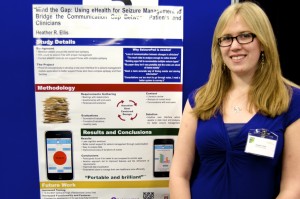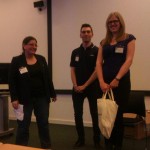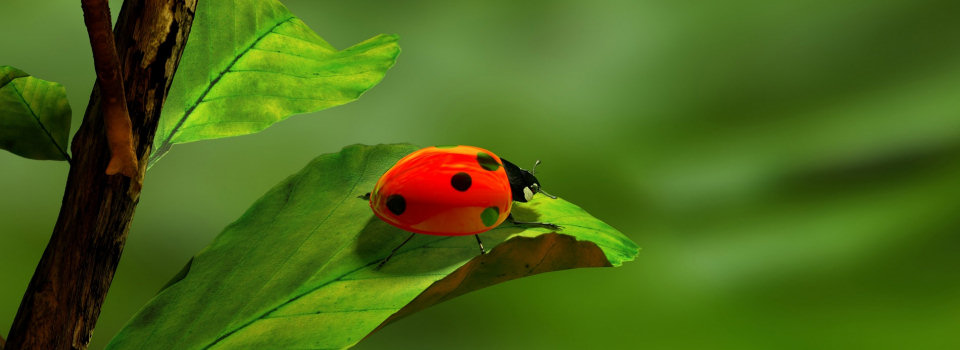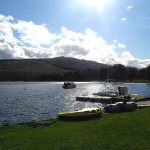The colloquium took place at the gorgeous campus of the University of Reading in Reading. Its aim was to promote Women in Computing and a range of students attended to present poster abstracts in four categories. The categories were first year, second year, final year (which incorporated third years and fourth years) and MSc. My category had thirty people in it as it covered two year groups. Throughout the day we listened to inspiring talks from women in the field and in academia. The range of topics of the talks and posters was vast and very interesting. It was attended by university students, industry and academics.

My poster was about my final year project - Seizure Pad. My younger brother was diagnosed with a rare form of epilepsy when he was four years old. From then, I have helped care for him. As technology has advanced, my mother has tried multiple methods to assist in managing his seizures. However, none were suitable enough. I began to do some research and found that she was not alone. That’s where Seizure Pad comes in.
The rise in ubiquitous computing has seen advancements in eHealth. From health care applications to Internet based health monitoring systems, there is a range of eHealth tools available for patients. For those with epilepsy, eHealth provides digital diaries and analytical tools to monitor seizures. However, these tools do not support those with complex epilepsy. Good management of complex epilepsy requires carers to log and analyse data about frequent seizures. Current eHealth is limited because the lack of user involvement in the design and development of applications has failed to identify and support the communication of complex data between the patients and clinicians, which in turn leads to poor overall support and management.
Seizure Pad was developed as a result of an experience driven design study following a participatory approach. It has involved working closely with a range of clinicians, patients and other users to ensure an inclusive support tool for those with complex epilepsy. By identifying the types of data to be recorded and providing an intuitive user interface, it presents a new framework to assist in seizure management. Seizure Pad offers customised input fields, automatic data capture and a clear analysis of the data. This visualisation of data empowers the patients to be more independent and contribute to their healthcare.
Currently the study has developed a prototype, which is being tested by end-users. I am hoping to conduct further research which will involve a randomised clinical trial of Seizure Pad to further test its impact on the communication divide and self-efficacy of the user.

I was humbled to have won the finally year category at the BCSLovelace Colloquium 2014 as the projects I was presenting alongside were amazing. EMC gave me a very generous cash prize of £300 and I also received a goody bag which included, among other things, a furry Android, which has been stolen by my cat, Bitcoin! Although this is the fifth conference to attend and fourth to present at, I found it the most enjoyable. Whereas the other conferences were focused on a particular topic of research, this one was so varied. Everyone I spook to had a completely different focus and project to my own. It was exciting as I rarely get to talk to students out with my own class, and never do I get to talk to some many fascinating women. Also, one of my biggest fears about joining the IT industry is my lack of interest in the more technical side. However, this conference showed me that I have nothing to fear as the variety of exciting positions available is far greater than I had previously thought! I think the most valuable thing I took away with me was that life is about risks, sometimes they work out other times they don’t but it’s just about finding out what works for yourself. As all the brilliant speakers said, if one job doesn’t feel right, look at a different area within IT for we are part of an ever changing industry!


